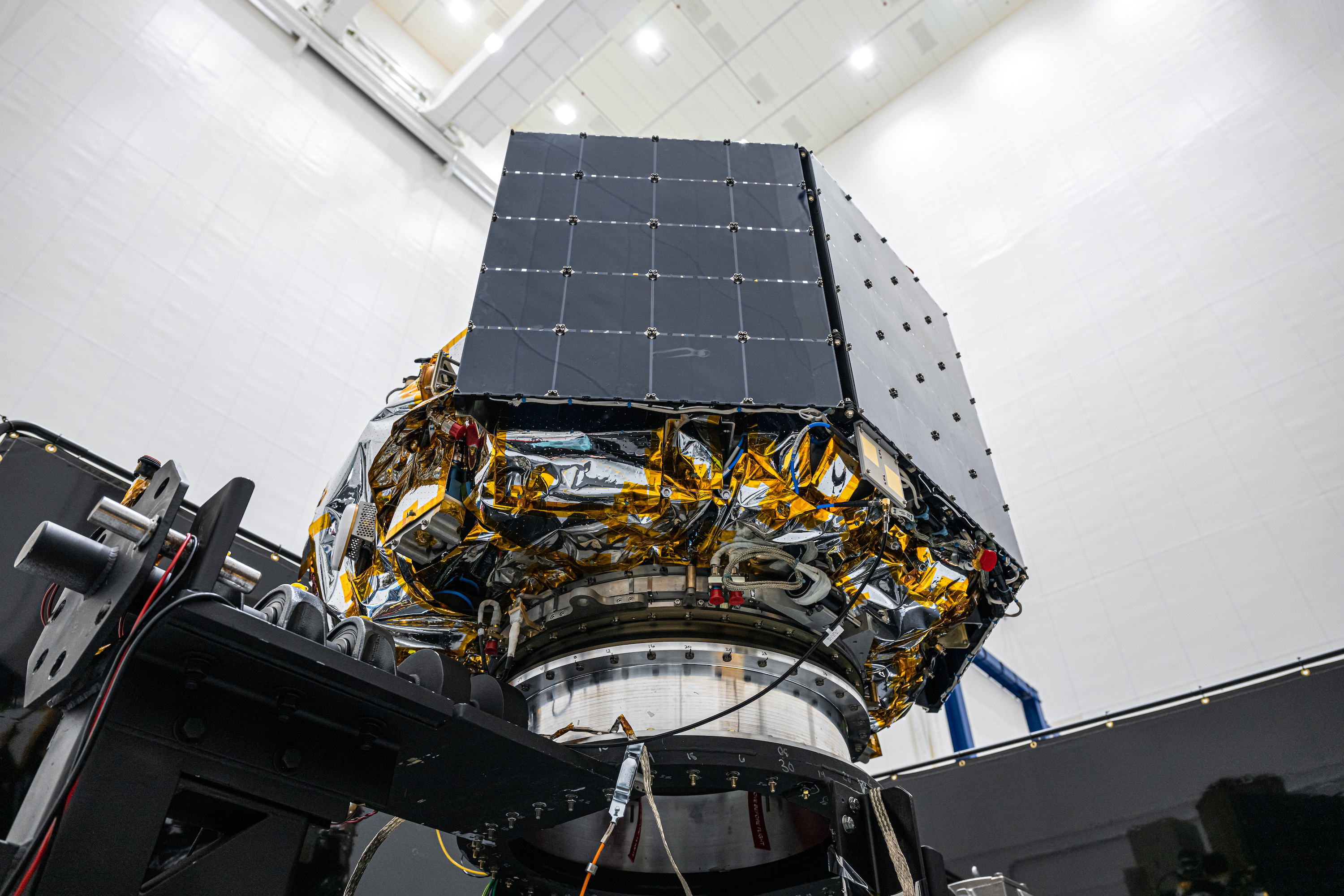Vast Space, a company that emerged from stealth last September with the aim of building artificial gravity space stations in low Earth orbit, has acquired space tug startup Launcher, TechCrunch has exclusively learned.
The acquisition, a first for Vast, will give the company access to Launcher’s Orbiter space tug and payload platform and its liquid rocket engine, E-2. Under the terms of the deal, Vast will also absorb all of Launcher’s talent, including Launcher founder Max Haot, who will join as president. The two companies told TechCrunch that the deal has been in the works for months, with both signing a Letter of Intent to acquire back in November.
The deal could be a big accelerator for Vast; the company’s founder, billionaire crypto pioneer Jed McCaleb, said Vast will use the Orbiter tug to test space station subsystems and components in orbit as soon as June of this year, and then again around October. Those two missions, which will be Orbiter’s second and third flights, will also carry customer payloads. Vast will continue to operate Orbiter as a commercial product; Haot said they had more than five customer contracts and are signing more.
Haot added that the space tug’s abilities, like approaching and moving away from spacecraft and hosting payloads, as well as its technologies like flight software, avionics and guidance, navigation and control systems will complement development of the space station.

Launcher made news last week when it said that its first Orbiter mission, which took place at the beginning of January, ended in failure after the spacecraft’s power systems malfunctioned. Despite that setback, Haot told TechCrunch that the results of the mission were “well above industry average.”
“We know exactly what went wrong. We were fully operational for the duration of the battery and we fell short of deploying our customers because of a power issue,” he said. “So Vast, Jed and us are actually extremely proud of what was achieved. We have two more flights this year. […] If you think about it, the odds that this is a stable platform by the end of the year are very high.”
Launcher was also developing its own launch vehicle, but that program will be discontinued under Vast.
The two companies declined to provide much more detail about the upcoming missions using Orbiter, nor did they offer any detail about future timelines for development, partnerships or form factor of the station. But they did say that the first station the company sends to space will be zero G, with artificial gravity stations following.
More generally, McCaleb said that acquisitions are not part of Vast’s larger strategy. “Acquisitions typically go pretty wrong,” he said. “For the most part, the combined team now plus a few more folks, we’ll be able to do quite a bit.”
McCaleb, who was one of the creators of the now notorious Mt. Gox crypto exchange and a founder of the protocol Ripple, echoed other billionaire space founders when he said he was motivated by long-term thinking about the future of humanity: “For me, the compelling thing is to push humans out into the solar system,” he said. But where SpaceX CEO Elon Musk is trying to solve the launch part of that equation, McCaleb has set his sights on in-space human habitation.
Thus far, McCaleb has been fully funding the venture, and will continue to do so until the company establishes revenue. “At that point, you can raise much more money in better terms,” he said. He added that the company is also planning on eventually bidding for funding under NASA’s Commercial low Earth orbit Development (CLD) program, which the agency established to kickstart private stations in space once the International Space Station retires in 2030.
The private space station industry is quickly becoming a crowded field, and Vast will have to contend with other established players for its slice of the market. Three companies have already received funding under the CLD program: Northrop Grumman; Nanoracks, which is designing a station with parent company Voyager Space and Lockheed Martin; and Blue Origin, which is leading a team that includes Boeing and Sierra Space. Axiom Space has also been granted NASA funding for its space station under a separate award.































Comment